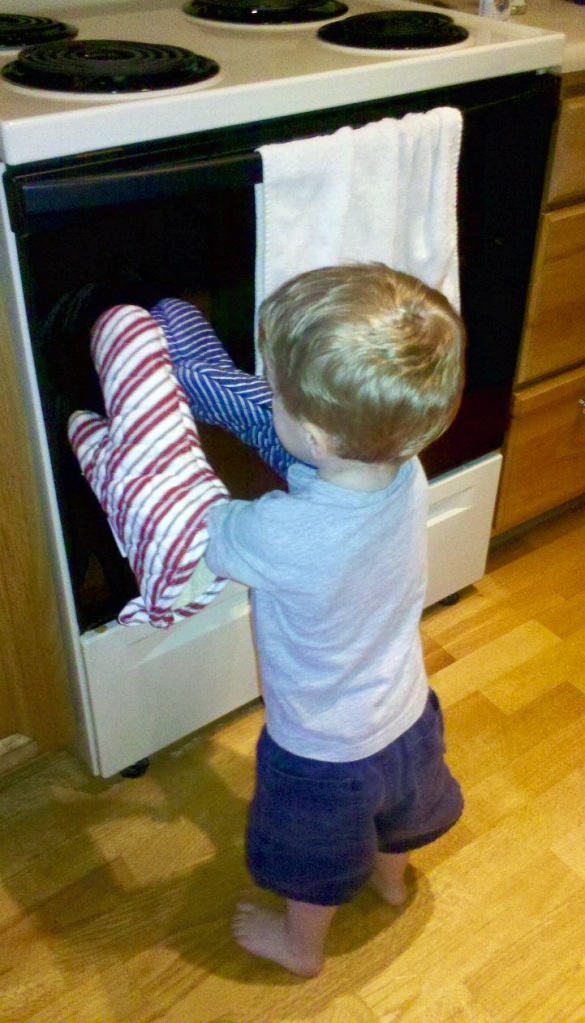I remember thinking how simple it all sounded, and I was relieved to know I had a model to follow. What I didn’t know at the time is that this simple model is anything but simple…

Denial.
Anger.
Withdrawal.
Acceptance.
I first learned about these stages of grief when Grandma Anne died (over 30 years ago). My cousin, who was a newly minted police officer at the time, described how he received training on this model in the police academy.
I remember thinking how simple it all sounded, and I was relieved to know I had a model to follow. What I didn’t know at the time is that this simple model is anything but simple.
Models provide a basis for understanding a concept or an idea…and that’s helpful. Models make the complex seem simple. But models rarely capture the layers of detail or the often-gut-wrenching processes they describe.
Today, the DAWA model is a bit outdated. Additional “stages” have been added over the years to the original model. Stages like shock, bargaining, depression, and testing are layered into discussions of the grieving process nowadays.
How does all of this relate to the Coronavirus?
Thanks to Coronavirus, we are suddenly sharing a grief experience with every person on the planet, at the same time. Every single one of us has lost something extremely important because of Coronavirus.
The normal that we knew, the normal that we understood, the normal that we took for granted…died over the last 30-60 days. If you could ask all 6 billion-plus people on Earth when, exactly, normal died, their answers would vary by a few days or few weeks. But nobody would deny that their normal is gone.
When we grieve or face a major crisis in our lives, we come together with others, we gather closer to the people we love, we comfort each other with hugs and shared laughter. We cry together. We cook together. We share meals. We share stories about what we’ve lost. We might go to an inspirational concert and hold hands while we sway and sing along with tears streaming down our faces.
We love to be with people, even if we describe ourselves as introverts or “not a people person.”
Unfortunately, that part of normal has also died (at least for a while).
While it doesn’t look like it (because our beloved normal is gone), we are all grieving. Every one of us.
Make no mistake about it. Something we loved, something we treasure, and something we counted on has died. We are grieving our loss, even as events unfold in front of us that may make things worse before they get better.
We probably don’t think we have time right now to grieve. But, we’re each somewhere on the DAWA continuum of denial, anger, withdrawal, or acceptance. In fact, we’re bouncing around on that continuum today.
We’ve lost our normal, and we’re being forced to live in a new normal. This new normal will probably give way to yet another new normal a few months from now. None of us know what any of this will look like. That mystery is an unfortunate part of our new normal (as crazy as it may sound).
It’s normal to be in denial. It’s normal to be angry. It’s normal to withdraw or try to escape. It’s also normal, and necessary, to find acceptance.
Acceptance doesn’t mean giving up. It means that the energy we’ve been using to fight the new normal can be channeled toward making the best of what’s in front of us.
Sure, we all miss our beloved normal from the past. We’d prefer to have our old normal back in our lives. But we must find a way to accept, to allow ourselves to rest, and let go of our longing.
The good news is that we’ve each had normal die before. We’ve had to adjust to new normals throughout our life and we’re generally pretty good at it:
- Moving from one school to another and making new friends
- Graduating high school or college
- Starting our first “real” job
- Leaving our first job
- Starting our second job
- Meeting the person of our dreams that we plan to spend the rest of our life with
- Divorcing that person
- Experiencing the death of a loved one
- Becoming a parent (or a grandparent)
- Starting your own business
- Selling that business
- Losing a house and everything we own in a fire
- The knee injury that forced you to stop playing your favorite game
- Having your house destroyed in a tornado
These are all examples of events in our lives that require us to let go of the old normal and embrace the new normal. Sometimes the new normal is because of something amazingly good, and other times it’s caused by something amazingly bad.
I’m not sure I’ve reached the acceptance stage in my own grieving process. I tell myself that I’m there, but I know it’s not always true. As I work through the process and prepare myself for what lies ahead, I like to keep this list of ideas in mind:
- Take things one day at a time
- Prayer is your instant connection to someone who loves you completely
- Celebrate your victories, no matter how small
- Give yourself a break
- Be grateful and enjoy what you have
- Forgive yourself for not knowing exactly what to do (none of us know, which is true a lot more than we’d like to admit)
- Only allow yourself to worry about the future for a few minutes each day and move on. I’d say to stop worrying completely since worrying is a non-productive use of energy, but I know it’s not possible to eliminate it completely.
- Check-in once each day for the news on Coronavirus, and what the latest government directions are (social distancing, masks or no masks, etc.). By now, you know the symptoms, what you’re supposed to be doing to prevent the spread, and what you’re supposed to do if you or someone close to you become symptomatic. The rest is probably not super useful, and you can catch-up on all of it during your once-a-day check in.
- Be kind to others. Your kindness will go a long way and may lead to more kindness in your “downstream.” Even a smile to a stranger letting them know we’re all in this together is helpful. By the way, your eyes show your smile, even if your mask doesn’t.
- Realize that you are grieving, and so is everyone else. We will each have good days and bad days in our grief journey.
- Take time to gather with your friends and family members by phone, video conference, or even a nice email note. These are your people. Embrace them remotely.
We are living through future history. The events happening around us and to us today will be discussed, debated, and written about for decades to come. Our lives are forever changed, and the changes are continuing to unfold.
We can use our energy to reach back to the past with all that we have, searching for the normal that’s gone.
Or, we can channel our energy to reach toward the future, creating the best possible new normal for ourselves and our loved ones.
While I grieve for the past, I choose to reach for the future.
Photo by Mike Labrum on Unsplash










